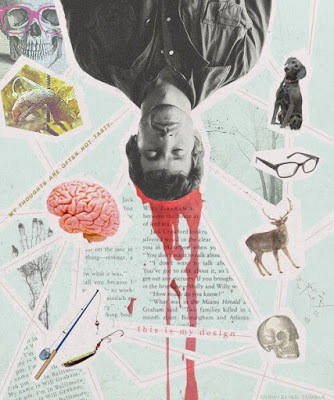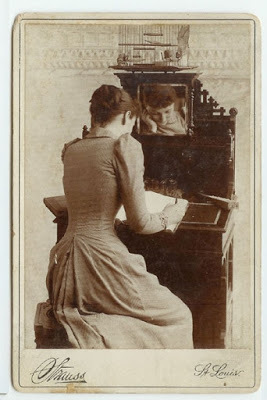10 ways to live more like a 19th century writer

Technology is changing our brains. Our attention spans are shrinking and we find it hard to concentrate on one task at a time. Neuroscientist Daniel J. Levitin says that technological multi-tasking increases the production of the stress hormone cortisol as well as the fight-or-flight hormone adrenaline, it can overstimulate our brain, cause mental exhaustion and poor decision making.
In a recent interview with Lynne Malcolm on All in the Mind, Levitin was talking about his book The Organized Mind: Thinking Straight in the Age of Information Overload and said: 'there's a structure in the brain that allows us to switch between different modes ... Each time you switch what we call your attentional set, that is what you are focusing on, it burns up glucose. There is a switch in the brain, it's a neurochemical switch but it's kind of like a light switch, and the glucose gets burned up when you switch tasks, and the glucose is in limited supply.
 So after a bunch of rapid shifting between emailing and texting and driving and talking and all the other things we do, if you feel depleted and tired, it's because you have literally depleted this glucose source. And cortisol the stress hormone is released as a result. That clouds your thinking. Among other things, it shuts down higher cognitive activity. Cortisol is associated with the fight or flight reaction, so you are not meant to be pondering and solving complicated problems in a fight or flight situation, you are meant to either punch somebody in the nose or run away so they don't punch you.'
So after a bunch of rapid shifting between emailing and texting and driving and talking and all the other things we do, if you feel depleted and tired, it's because you have literally depleted this glucose source. And cortisol the stress hormone is released as a result. That clouds your thinking. Among other things, it shuts down higher cognitive activity. Cortisol is associated with the fight or flight reaction, so you are not meant to be pondering and solving complicated problems in a fight or flight situation, you are meant to either punch somebody in the nose or run away so they don't punch you.'Being a chronic technological multi-tasker, I've personally seen a change in myself over the last five years. I find it hard to concentrate for long periods of time on my work. I'm impatient sitting through a movie; it feels too long and contrived, more like prison than entertainment. An achievement hasn't been an achievement until it's been posted and liked by my followers. I have these impulses to snap and share; I've found myself going on an outing looking forward to the photo opportunities for Instagram. Technology has created instincts I didn't have five years ago.
So, like the Paleo diet, where people are eating like our ancestors, I've been wondering what it would be like to live and write like a pre-digital writer. Could I improve my brain function and my creativity by cutting out the digital activity?
I'm trying to live more like a 19th century. I've set up these rules for myself, to see if calmer thinking can have a positive impact on the novel I'm currently writing:

Get straight into writing first thing in the morning rather than checking and responding to messages. Use optimal brain time for writingthe internet should only be used for research while writing. Do not fall down rabbit hole of informationmake dedicated time for responding to messages, rather than doing bits and pieces throughout the day. Previously, writers would have opened letters after the mail arrived. They would have had a confined period for reading and responding to correspondence.take email and social media off phone and minimise creating content for Twitter, Instagram and Facebook. Wattpad to be used for serialising stories (Dickens made an art of serialised fiction back in 1836) and Goodreads to be used for rating recently read books and adding favourite quotes only.quiet walks and gentle exercise eat nutrient-rich foodsevenings are for family time, socialising and reading. Let the brain rest and restore before bed.aim to get at least 7 hours of sleep a nightmake more time for observation and daydreaming handwrite ideas and micro-fiction pieces in notebooks. Writing by hand is supposed to inspire creativity by slowing down the process and engages more parts of the brainImages via Favim

Published on November 10, 2015 11:26
No comments have been added yet.



